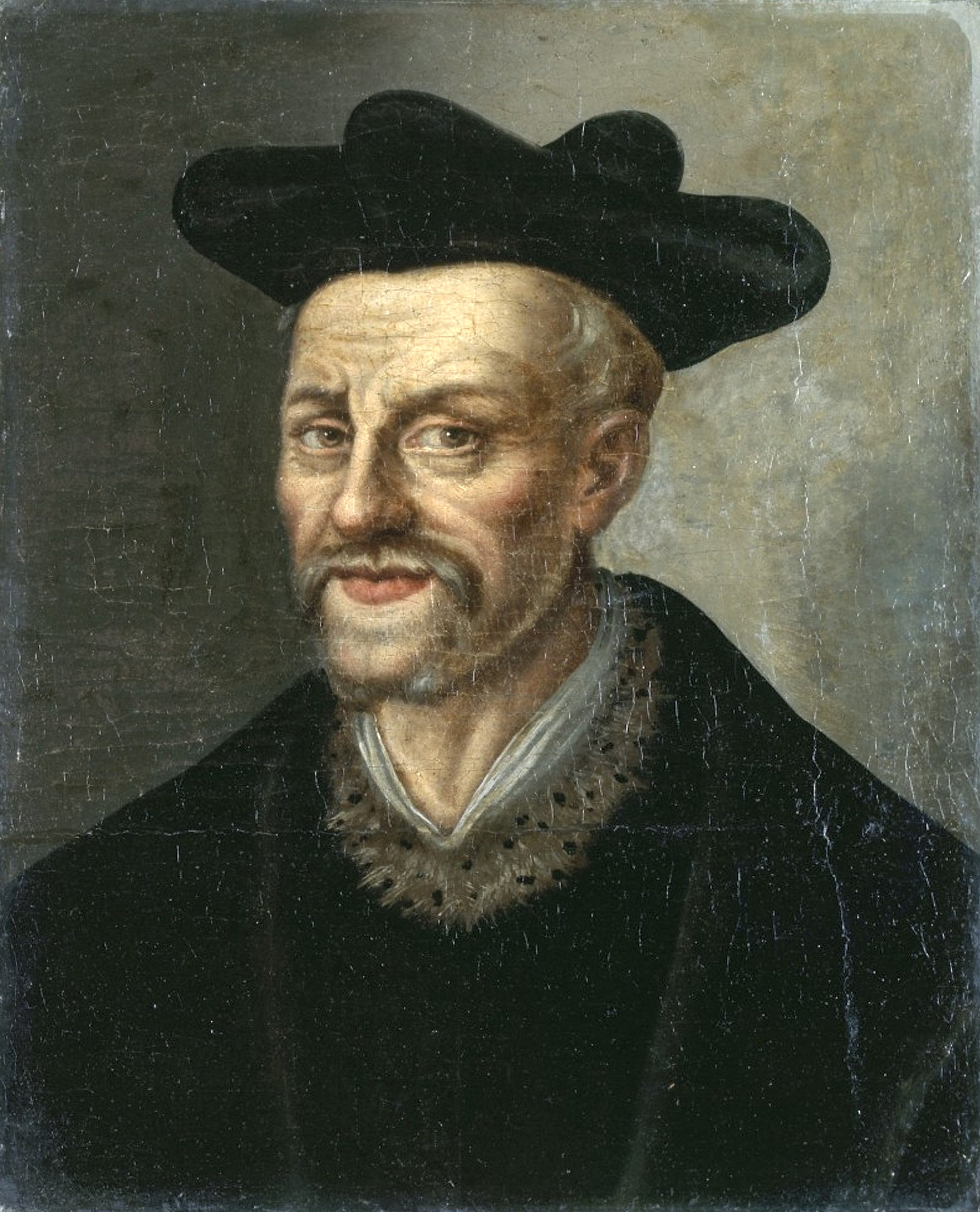Francois Rabelais Frases famosas
“Conheço muitos que não puderam quando deviam, porque não quiseram quando podiam.”
citado em "Duailibi Essencial: Minidicionário com mais de 4.500 frases essenciais" - Página 303, Roberto Duailibi, Marina Pechlivanis, Elsevier Brazil, 2006, ISBN 8535219579, 9788535219579 - 496 páginas
Atribuídas
Variante: Conheço muitos que não puderam quando deviam porque não quiseram quando podiam.
“O vinho tem o poder de encher a alma de toda a verdade, de todo o saber e filosofia.”
le vin possède le pouvoir de remplir l’âme de toute vérité, de tout savoir et de toute philosophie.
Oeuvres complètes, Volume 7 de Oeuvres de François Rabelais - Página 909, François Rabelais, Abel Lefranc - H. et E. Champion, 1913
Citações de homens de Francois Rabelais
“O bom vinho alegra o coração do homem.”
le bon vin réjouit le cœur de l'homme
"Le Tiers livre" - Página 482; de François Rabelais, Pierre Michel - Publicado por le Livre de poche, 1966 - 542 páginas
“Um homem nobre nunca odeia um bom vinho: é um preceito monarcal”
Jamais un homme noble ne hait le bon vin : c'est un précepte monacal.
"Oeuvres complètes Gargantua Pantagruel Le tiers livre Le quart livre Le cinquième et dernier livre Lettres et oeuvres diverses Gargantua Pantagruel Le tiers livre Le quart livre Le cinquième et dernier livre Lettres et oeuvres diverses" - Página 11; de François Rabelais, Guy Demerson, Michel Renaud, Geneviève Demerson - Publicado por Editions du Seuil, 1995 - 1579 páginas
Francois Rabelais frases e citações
“Tudo chega com o tempo, para quem sabe esperar.”
Tout vient à point, qui peut attendre
"Rabelaesiana", in: "Oeuvres de F. Rabelais" - Página 648 http://books.google.com.br/books?id=l_x9AAAAIAAJ&pg=RA6-PA648; de François Rabelais - Publicado por Ledentu, 1835 - 677 páginas
“Pouco tenho, devo muito, o resto fica para os pobres”
em seu testamento
I owe much — I possess nothing — I give the rest to the poor
"The Parterre", volume 2, página 40 http://books.google.com.br/books?id=2k8AAAAAYAAJ&pg=PA40; Publicado por E. Wilson, 1835
Variante: O meu sonho é dever muito, não ter nada e, o resto, deixar para os pobres.
Francois Rabelais: Frases em inglês
“Plain as the nose in a man's face.”
Author's prologue.
Gargantua and Pantagruel (1532–1564), Fifth Book (1564)
“He did not care a button for it.”
Fonte: Gargantua and Pantagruel (1532–1564), Gargantua (1534), Chapter 16.
“How well I feathered my nest.”
Fonte: Gargantua and Pantagruel (1532–1564), Gargantua (1534), Chapter 17.
“I have nothing, owe a great deal, and the rest I leave to the poor.”
Je n'ai rien vaillant; je dois beaucoup; je donne le reste aux pauvres.
His one line will, as quoted in Arthur Machen : A Short Account of His Life and Work (1964) by Aidan Reynolds and William E. Charlton, p. 186.
Fonte: Gargantua and Pantagruel (1532–1564), Third Book (1546), Chapter 52 : How a certain kind of Pantagruelion is of that nature that the fire is not able to consume it
Fonte: Gargantua and Pantagruel (1532–1564), Fourth Book (1548, 1552), Chapter 23.
Fonte: Gargantua and Pantagruel (1532–1564), Fifth Book (1564), Chapter 6.
Author's prologue.
Gargantua and Pantagruel (1532–1564), Fifth Book (1564)
“Looking as like…as one pea does like another.”
Fonte: Gargantua and Pantagruel (1532–1564), Fifth Book (1564), Chapter 2.
“Whose cockloft is unfurnished.”
Author's prologue
Prologue.
Gargantua and Pantagruel (1532–1564), Fifth Book (1564)
Fonte: Gargantua and Pantagruel (1532–1564), Gargantua (1534), Ch. 57 : How the Thelemites were governed, and of their manner of living; the famous dictum of the abbey of Theleme presented here, "Do what thou wilt" (Fais ce que voudras), evokes an ancient expression by St. Augustine of Hippo: "Love, and do what thou wilt." The expression of Rabelais was later used by the Hellfire Club established by Sir Francis Dashwood, and by Aleister Crowley in his The Book of the Law (1904): "Do what thou wilt shall be the whole of the Law."
Natura abhorret vacuum.
Chapter 5 http://books.google.com/books?id=tBROAAAAcAAJ&q=%22natura+abhorret+vacuum%22&pg=PA22#v=onepage.
Gargantua and Pantagruel (1532–1564), Gargantua (1534)
Fonte: Gargantua and Pantagruel (1532–1564), Gargantua (1534), Chapter 54 : The inscription set upon the great gate of Theleme
Fonte: Gargantua and Pantagruel (1532–1564), Gargantua (1534), Chapter 54 : The inscription set upon the great gate of Theleme.
Fonte: Gargantua and Pantagruel (1532–1564), Gargantua (1534), Chapter 54 : The inscription set upon the great gate of Theleme.
